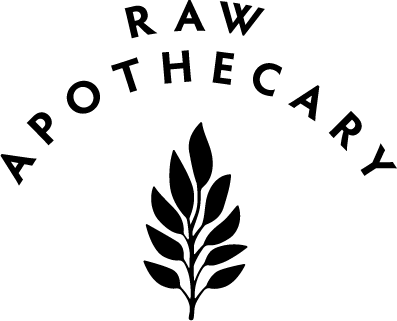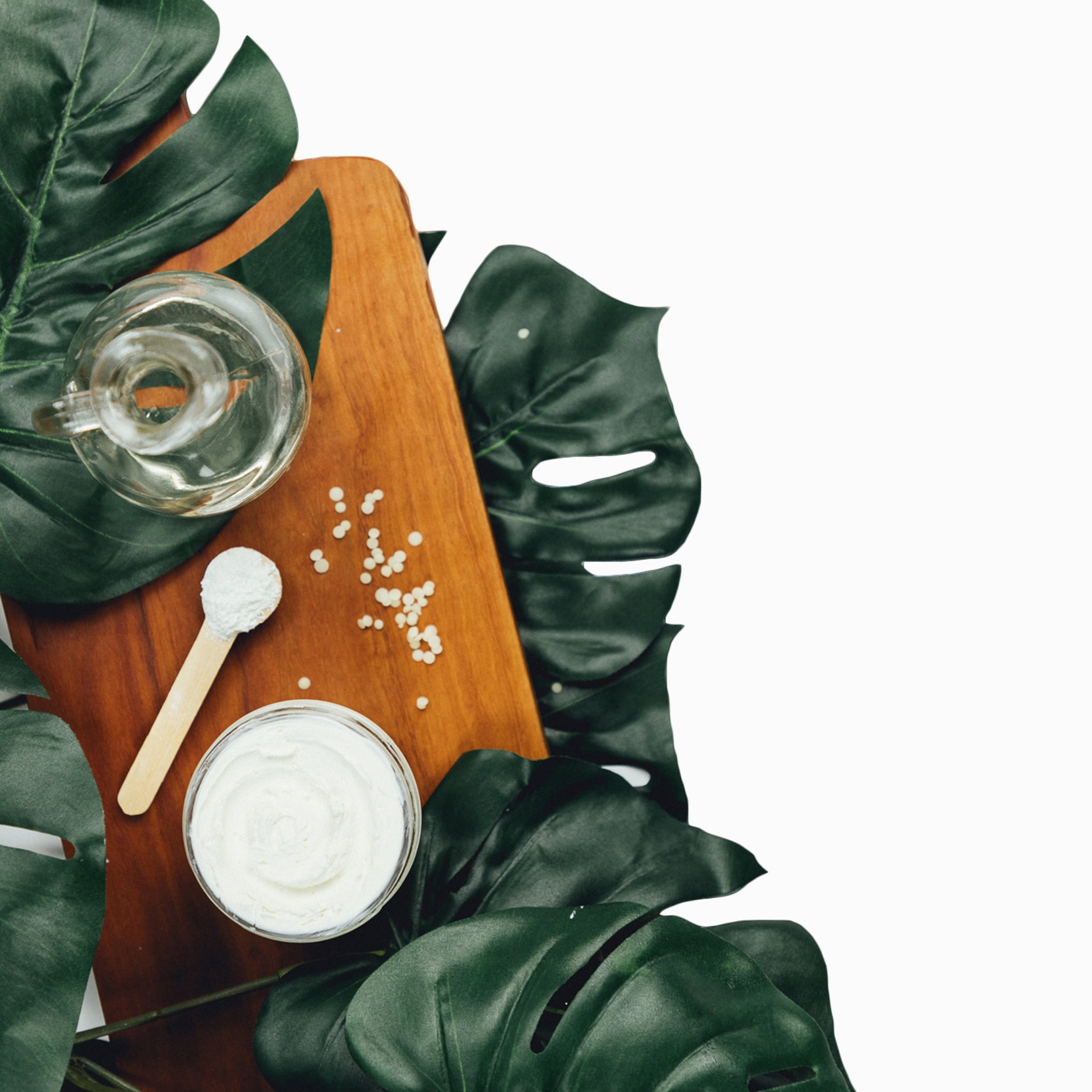The Raw Revolution
It's been a long year.
We know, and we're here to make some changes. Not to our products, those are staying the same (why mess with perfection?) but we need to do some serious overhauling. On what, you ask?
Well, everything else. With our new website comes new product packaging, new content, and a new voice. If you’ve checked out our old website, you know what we mean.
What hasn’t changed is our commitment to providing quality, natural products to support your lifestyle. We want to be your cheer squad. You are DIY queens, kings, and everything in between - and we want our products to showcase that. Go team, go you!
In short, we’re ready to get serious. Shoutout to you, and shoutouts (shouts-out?) to the new faces that might be reading this. Keep going, we got some stuff to talk about.
Please allow us to reintroduce ourselves.
We’re Raw, and so is everything we do.
Raw ingredients, raw recipes, and raw self-care.
We believe nature did it best, so we don’t include any synthetic ingredients in our products. In fact, most of our products only have one ingredient: whatever it’s called is what it is. Our Shea Butter is just that, two words.
We don’t use things like petrolatum, ethylparaben, or dimethicone. You’ll find these in a lot of skin and hair care products, and besides just looking questionable on the label, they can do some serious damage to your body. We’ll get to that later.
Our products are also responsibly-sourced and Fair Trade. This means we don’t participate in rainforest destruction (among other terrible things) and provide our sources with ethical treatment and fair wages.
You’d be surprised at how many companies don’t follow these basic standards, but maybe you’ve heard about some of them in the news. For example, we get questioned frequently on the palm oil in our Raw African Black Soap, and for good reason.
Palm trees have been commercially farmed in plantations for over 20 years. To supply the large demand for the oil, industry leaders have burned down vast expanses of rainforest to make way for their farms.
This has pushed many animal species close to extinction, made Indonesia the third highest greenhouse gas emitter in the world, and uprooted many Indigenous Peoples from the land they’ve called home. Yeah, it’s that bad.
However, we don’t do that.
We get our palm oil, and all of our other natural ingredients, from sustainable sources. We aren’t plowing down habitats or uprooting anyone. We want to let nature be nature.
That brings us to our next point.
All natural, all "from somewhere."
Raw Apothecary doesn’t believe nature needs to be manufactured.
Instead, we focus on the most raw form of human innovation there is. Before sci-fi electrical conductors, before chemical synthesizing in test tubes to make the next “beauty miracle,” there was clever, practical science using what nature gives us.
For hundreds of years, people have been crafting healthy, holistic remedies using what exists around them. A perfect example of timeless human ingenuity is African Black Soap.
Originating in West Africa, black soap is a mixture of locally-harvested plants, such as plantains and cocoa pods. Recipes differ between communities, and are usually handed down through generations. Each ingredient is harvested, sun-dried, and cooked with natural oils before being left to cure.
What you wind up with is a soap packed with (take a deep breath): anti-fungal properties, antibacterial properties, natural exfoliants, Vitamin A, Vitamin E, Vitamin C, antioxidants, nourishing fatty acids, and strengthening proteins. That’s a lot.
We at Raw Apothecary want to honor the heritage of these products, and that’s why we tell you where everything comes from!
Our shea butter? Ghana.
Our delicious-smelling cocoa butter? Ecuador.
We source our mango butter from India.
We keep these products pure, as they should have been. Most commercial black soap contains added synthetic ingredients in the US. We’re not about that. We’re about sharing this all-natural, handcrafted goodness with the world.
The real tea on the beauty industry.
Over the years, huge leaps and bounds have been made in the world of skincare and cosmetics. There’s a science to it and, like most scientific fields, hoops that need to be jumped through to get a product on the shelf. But how comprehensive are these hoops, and does it equal a healthy product?
Short answer: not very, and not usually.
Skincare products are regulated by the FDA, just like drugs are. However, while a product must be proven “safe and effective” to be sold as a drug, cosmetics don’t need the same approval.
The FDA does not have the authority to make companies test their skincare and cosmetic products. Even the American Cancer Society says uncertainty about the safety of skincare products exists because “many products and ingredients have not been tested thoroughly.”
You remember the chemicals we mentioned earlier, right? Let’s take a quick look at those:
Petrolatum - A byproduct of the oil industry, used in hair dye, self-tanners, and face moisturizers. Increases the chance of skin cancer, can’t be metabolized, and can cause hormonal imbalances. Oh, no.
Ethylparaben (Parabens, for short) - Chemicals used to prevent bacterial growth. Linked to an increased risk of breast cancer, with several forms banned in Europe for questionable health risks. Oh, dear.
Dimethicone - A silicone that acts like a protective cover on skin and hair. Traps impurities and bacteria under the skin, and interrupts cell renewal which enhances blemishes and imperfections. That’s the opposite of what you want!
We told you it was bad.
The truth is, companies use these products because they’re cheaper and have a longer shelf life than most nature-based products. Many skincare items say they last from three to five years, even when they’re opened. That’s thanks to the preservatives (looking at you, parabens) and synthetic fillers present in their formulas.
People of color are at an especially high risk, according to the American Journal of Obstetrics & Gynecology. Their study of POC-centric products like root stimulators, relaxers, anti-frizz hair products, and styling gels found that they possessed a disproportionately large amount of toxic chemicals.
Raw Apothecary cares about your health, and we know that you do, too.
The real you, the crafty you.
You care about your health, and aren’t afraid to get crafty.
Or maybe you are, and that’s why you’re here - don’t be, you got this.
Getting started with all-natural beauty is simple. For the most part, you can just slather our products on your skin or hair and achieve nourishing, gorgeous results. Yep, you can do that.
But why stop there? The best part about raw materials is what you can make with them! Sunscreens, body scrubs, lip balm, and even food (yes, you can eat the cocoa butter). There are tons of recipes out there, all super-customizable to fit your individual style and tastes - or someone else’s, because the best gifts are handmade.
We’re all about inspiration, so we have some recipes to check out here.
Be warned, once you start making your own you’ll have a hard time going back to the stuff on the shelf.



